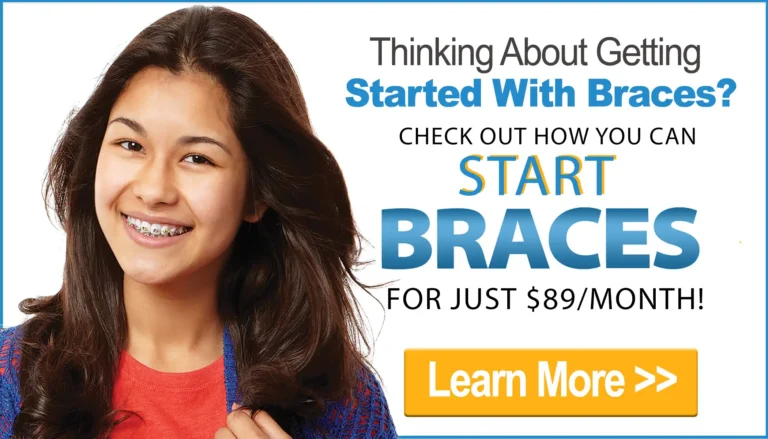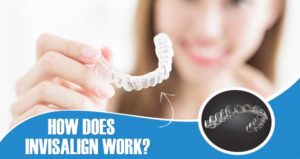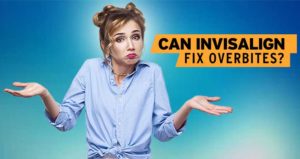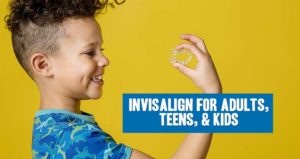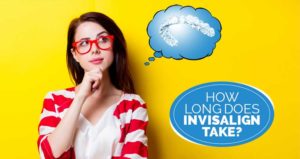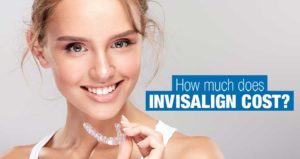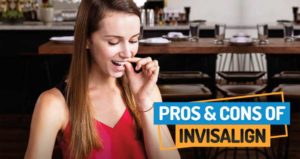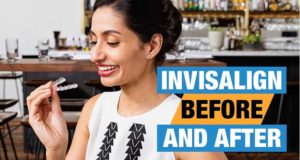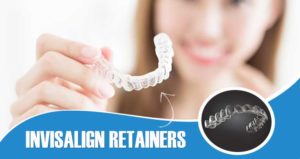Can Invisalign Fix Overbites and Other Bite Problems?
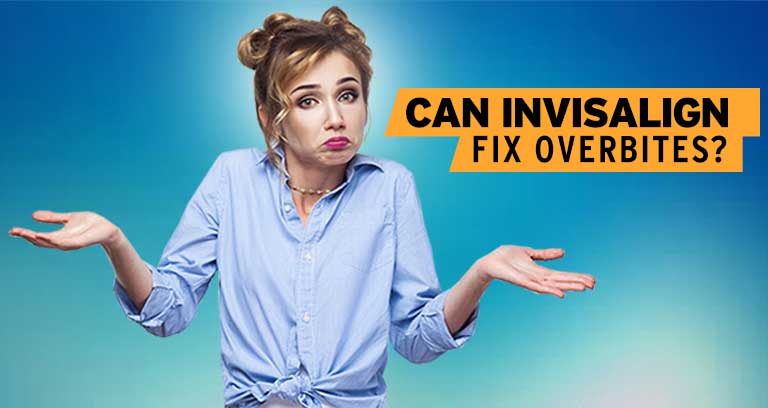
Not all orthodontic bite problems are created equal. Just like no two people are ever quite the same, tooth and bite problems tend to be different for each person.
Knowing the above, the answer to the following questions may seem obvious: Is Invisalign treatment a “one-size-fits-all solution”? Does it work for everyone?
Now, years ago you may have heard “Invisalign doesn’t work”…
…or a dental professional may have told you, “Invisalign can’t fix your bite.”
At the time, that may have been true.
But after 20 years of research and millions of patients treated with Invisalign trays, it has been proven to fix an overbite, as well as most other tooth problems…
…if designed properly by an experienced orthodontist.
What Are the Easiest Tooth and Bite Problems to Fix With Invisalign Treatment?
Certain tooth and bite problems are a “slam dunk” and are easily fixed by an orthodontist with Invisalign treatment (or metal braces for that matter). Individuals that have a “healthy bite” and minor crowding or spacing are the easiest to fix.
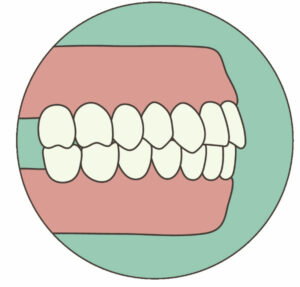
An Example of a Healthy or Normal Bite
Patients treated with Invisalign that don’t have major bite correction needed and just need minor alignment, are generally treated fairly quickly and can expect fantastic results. These would be considered in the mild to moderate category.
Patient of Premier Orthodontics Who Has a Normal Bite and Crowding
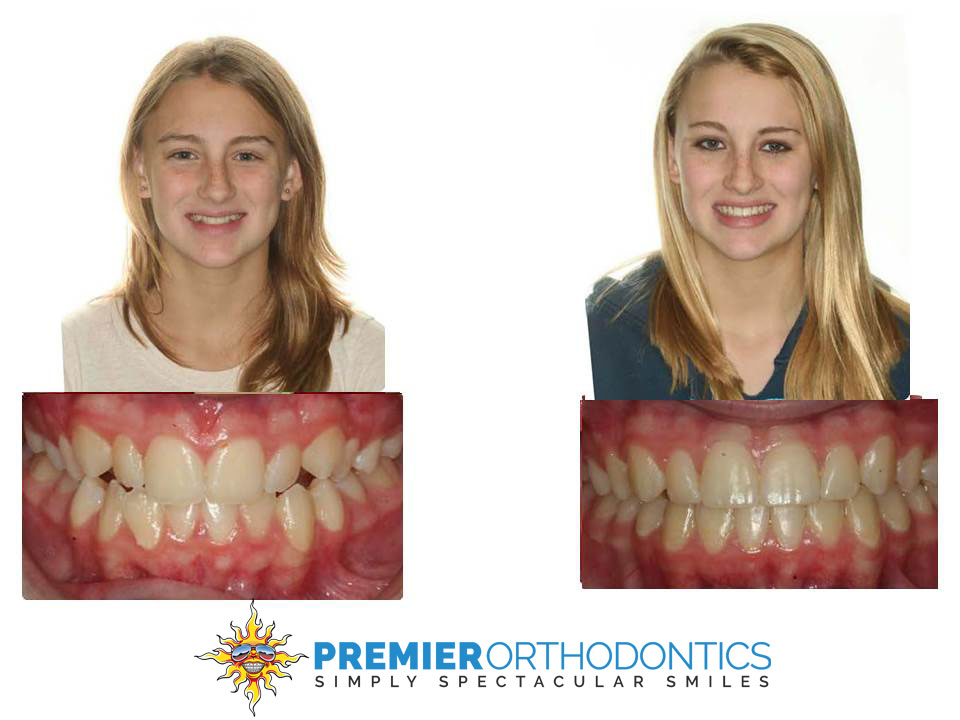
Patient of Premier Orthodontics Who Has a Normal Bite With Spacing
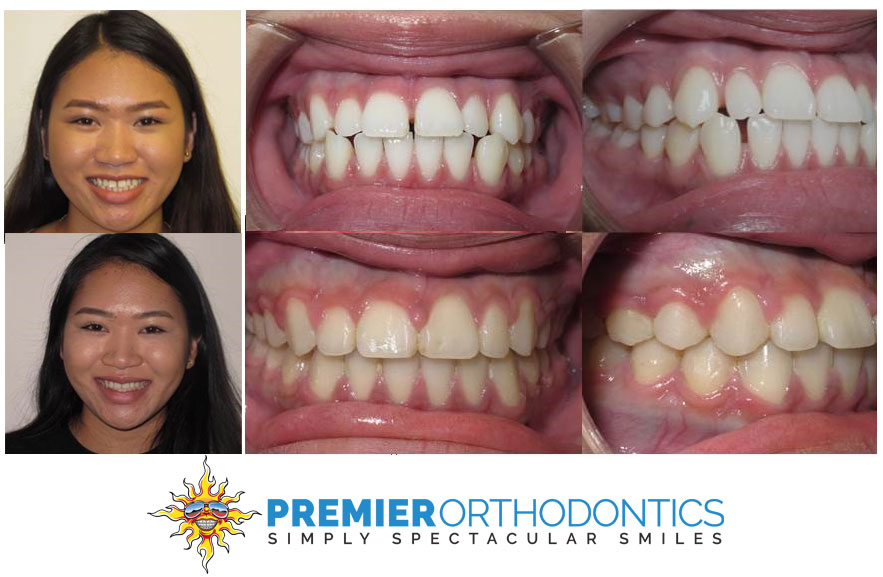
Can Invisalign Fix an Overbite?
Yes, Invisalign can fix overbites!
Watch our video or keep reading below to learn more.
This tends to be one of the most common bite problems among all age groups, so Invisalign needs to be able to work in several different circumstances.
How they are ultimately fixed will depend on a few key factors, such as:
- The age of the patient
- How severe the overbite is
- How well the patient handles the treatment
Fixing Overbites With Invisalign in Young Patients
If a patient is young and still growing (usually 12 years old or younger), an overbite can be corrected by using the patient’s growth to help correct the bite.
With the right type of appliance, we can help redirect a patient’s growth to help fix their bite. Invisalign has a special type of appliance specifically for this situation called “Invisalign Mandibular Advancement”.
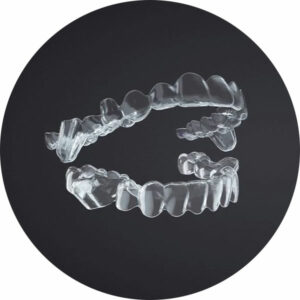
Invisalign Mandibular Advancement uses plastic wings on the aligner trays to help a young, growing child posture their upper and lower jaw forward in small, consistent increments.
This process, though involved, helps to properly direct a child’s growth. It simultaneously straightens the teeth and aligns the jaws.
To tell you the truth, orthodontists have been using mandibular advancement appliances for decades…
This is not a new concept. What sets the Invisalign version of the mandibular advancement apart, however, is the size (it’s much less invasive)…
…and comfort it provides during treatment.
Invisalign mandibular advancement can help correct moderate overbites. Most mandibular advancement appliances were bulky, uncomfortable, and difficult to clean back in the day. Invisalign mandibular advancement has brought us well into the 21st century with many incredible advantages::
Straightening teeth and aligning jaws in the same process
Removable for easy eating and dental hygiene
No food or dietary restrictions (unlike braces)
No emergency visits or irritation of the cheeks
Can easily be removed when playing sports or an instrument
Watch the video below to learn more about the effectiveness of Invisalign Mandibular Advancement
Fixing Overbites With Invisalign in Teenage or Adult Patients
Once someone is finished growing (usually after age 12 or 13), we can no longer rely on mandibular advancement appliances to fix an overbite.
One technique that can be used, however, involves wearing elastics with Invisalign aligners. These elastics are similar to elastics worn with traditional braces. They gradually move the bottom teeth forward while moving the upper teeth back, thereby correcting the overbite.
For patients with more severe overbites, an extra appliance called the “motion” appliance will be the most handy solution.
This simple but effective appliance is a small bar that gets placed on the upper teeth. A patient then wears elastics for a period to help reduce the overbite while simultaneously straightening the lower arch.
Watch the video below to see the Motion appliance in action.
Here is an example of a teen patient with an overbite treated with Invisalign at Premier Orthodontics:
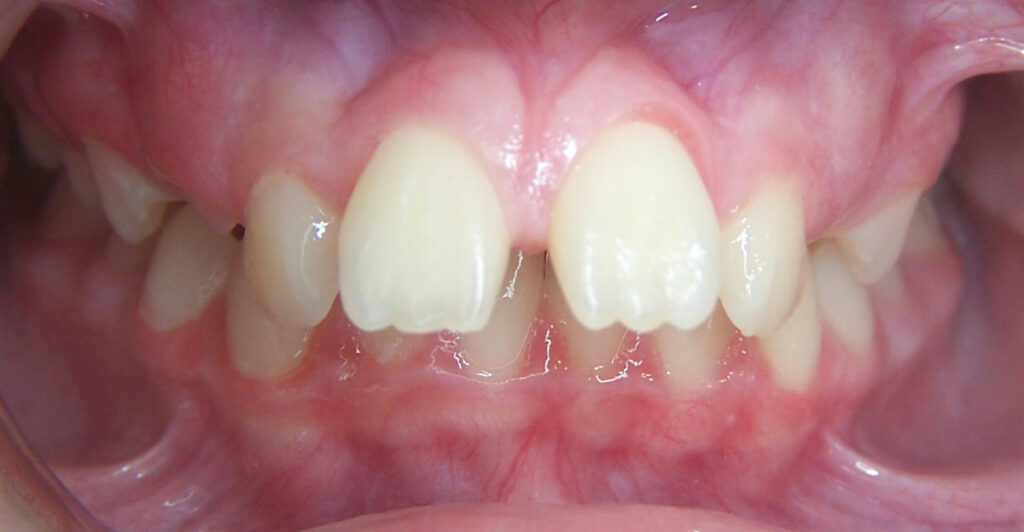
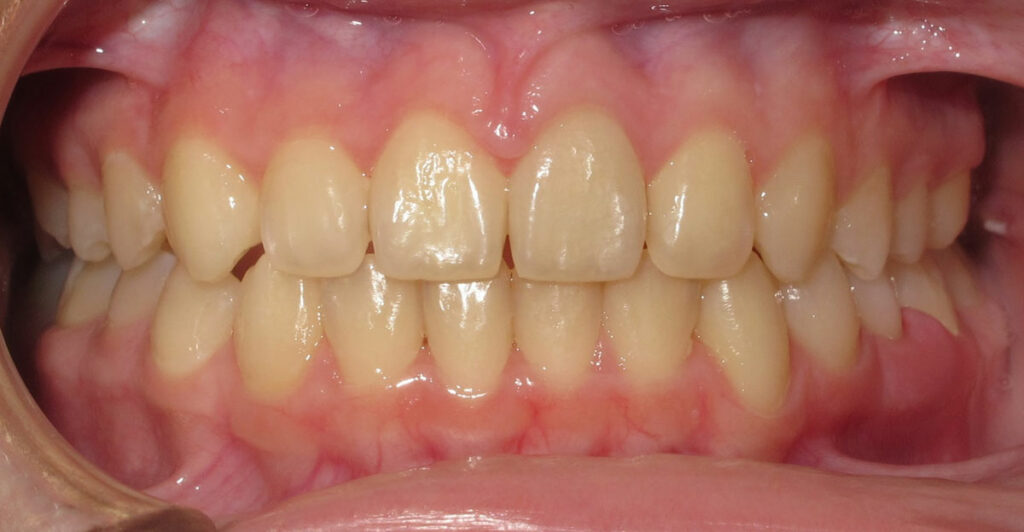
Here is an example of an adult patient with an overbite treated with Invisalign at Premier Orthodontics:

Click below to watch our video and see how Invisalign works and how we treated this patient!
Can Invisalign Fix Other Bite Problems?
Most bite problems can be fixed with Invisalign, including open bites, underbites, and even crossbites.
Depending on the type of bite and severity, wearing elastics, or some additional appliances may be needed.
Your orthodontist will evaluate each case individually, and based on previous experience, prescribe the best customized treatment plan to correct your bite.
Here are a few examples of patients treated with Invisalign at Premier Orthodontics with different types of tooth and bite problems:

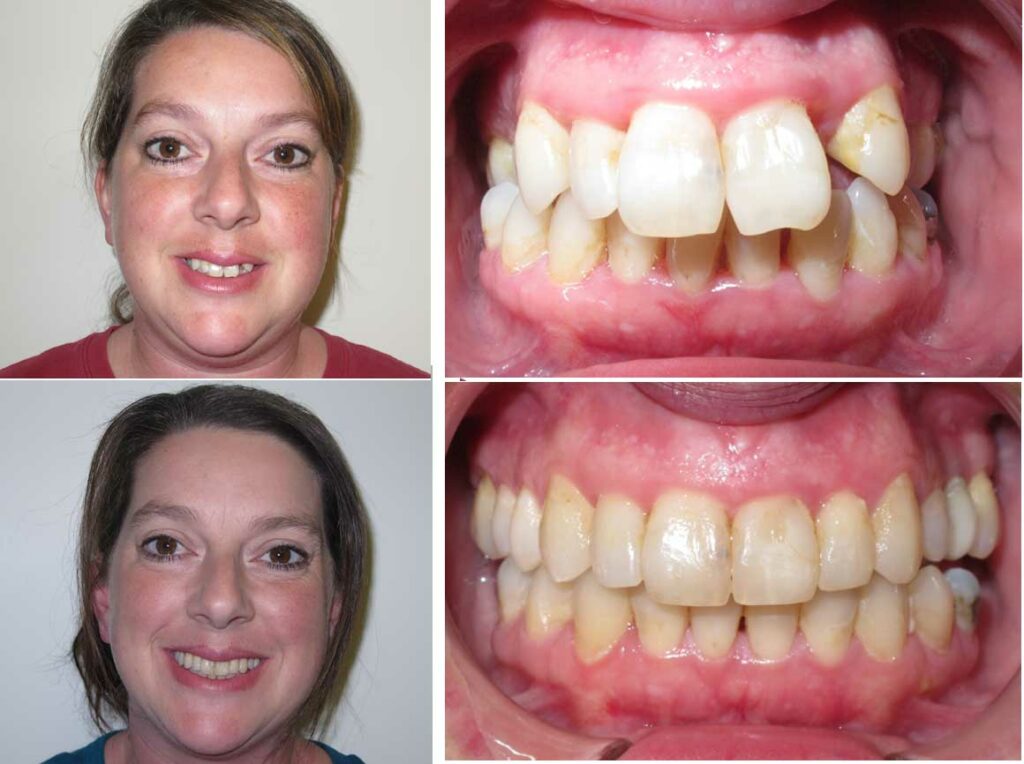

Fixing Spacing with Invisalign:
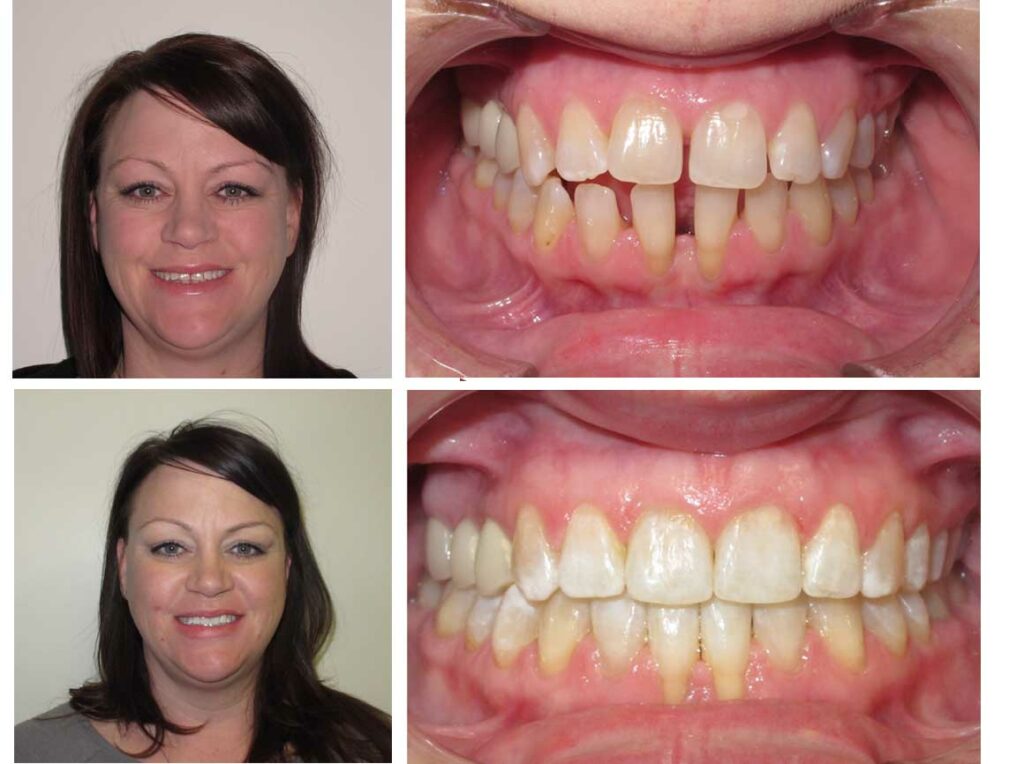
Fixing Crowding with Invisalign Aligners:


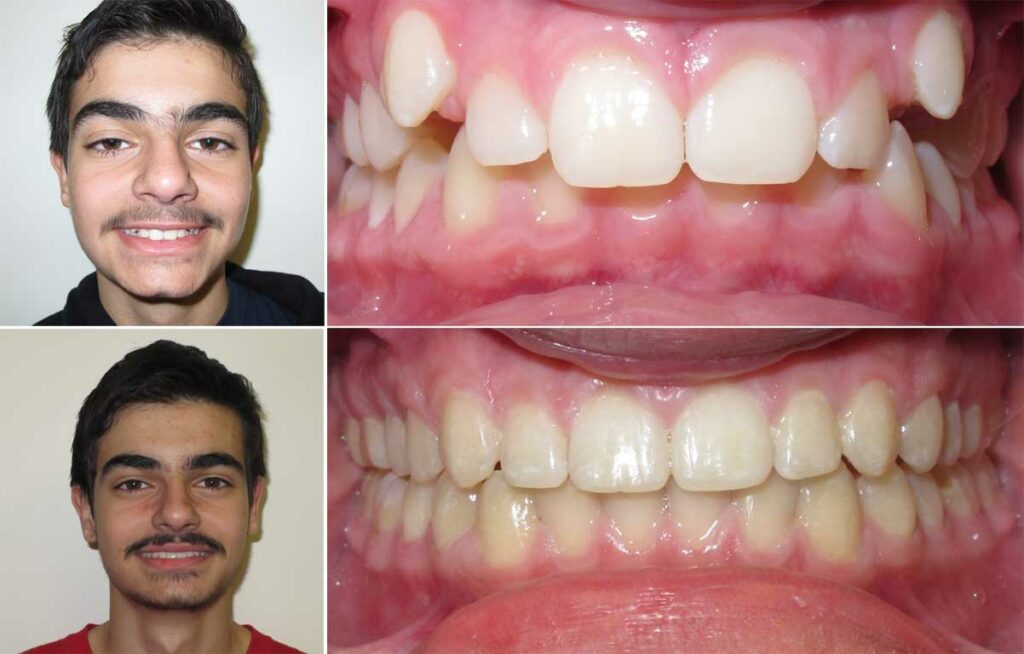
Now, there is more that goes into each step than that. But the Invisalign process is fairly straightforward.
For those who want to get into the specifics, read below to get the details of each step:
Can Invisalign Removable Aligners Fix Any Type of Tooth or Bite Problem?
Invisalign, when provided by an experienced orthodontist, can correct virtually any tooth or bite problem.
There are times that traditional braces, or a combination of traditional braces with Invisalign, may result in a shorter or more ideal orthodontic treatment outcome. These instances are few and far between, but….
…this is where the experience of the orthodontist comes into play.
You’ve likely heard the saying, “When all you have is a hammer, everything looks like a nail…”
…well if you go to someone who ONLY does Invisalign, chances are that will be their only recommendation.
Our goal for every new patient is to discuss the pros and cons of traditional braces, and Invisalign, give our professional recommendation and together determine the best plan for each patient so they have THE BEST experience possible. Whether that be metal braces or clear aligners.
Questions to Ask At An Invisalign Consultation
The questions you’ll want to ask at an Invisalign consultation, no matter who the orthodontist is:
- Is Invisalign the best choice to fix my teeth or bite?
- If so, when is the best time to get started?
Now that you understand what types of tooth and bite problems can be corrected with Invisalign, let’s talk about what age is best to get started.
Click below to continue reading in Chapter 3.
Schedule a Free Invisalign Consultation For You or Your Child
You can schedule a 100% free consultation for Invisalign you or your child with Premier Orthodontics to find out if Invisalign is the best choice for you.
An initial exam and Invisalign consultation is 95% about getting your major questions and concerns answered directly by a professional, like:

